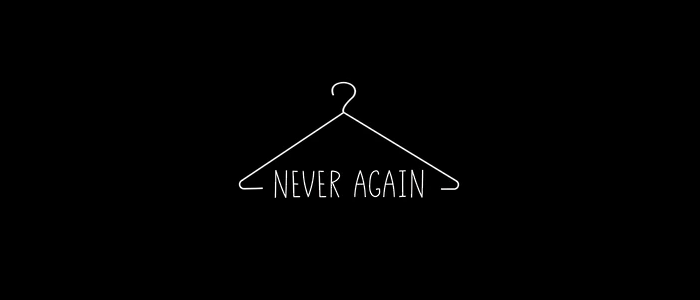Pro-Choice: A Journey Toward Reason
I’ve always been open about my Pro-Choice stance. As I’ve aged, I find that I’ve grown more assertive with my views, especially given the existing political environment of our nation. However, this wasn’t always my belief. During my younger years, my viewpoint was quite the opposite. But the transition towards a rational state in my beliefs didn’t occur instantly; it was a gradual process.
Twenty-five years ago, I underwent a tubal ligation on the same day as my last child was born out of necessity. My doctor had sternly advised that another pregnancy could cost me my life. My first pregnancy was arduous, and the second was even more grueling. My then-husband was lax with condom usage, and on two occasions, birth control failed us, resulting in the births of our children. It wasn’t a matter of not wanting more offspring but the possibility that having more might mean my premature exit from this world. Despite his objections and subsequent bitterness, I decided to go through with the procedure with or without his approval.
About a decade later, I found myself miscarrying on a toilet during (what would have been) an ordinary afternoon. My doctor calculated I had been around 4 to 6 weeks along at the time. Despite all precautions, I had become pregnant. Yet, the overwhelming relief that followed the miscarriage was unimaginable. For the first time ever, I had to seriously consider my stance on abortion, not for other women, but for myself. Until then, I had vehemently believed I would never opt for an abortion, even if it posed a risk to my life, a belief I now questioned after being repeatedly told that every life is sacred, often hypocritically so.
It’s important to note that anti-abortion sentiments are integral to the Roman Catholic faith I was raised in. I had been brainwashed by the Church and my parents into believing abortion was inherently evil, used irresponsibly by some women as birth control, with only “whores” opting for it rather than facing the consequences of their actions.
However, the foundations of these beliefs were shaken when I was 19 while offering comfort to a college friend who had to make the challenging decision to get an abortion. I quickly discovered that she wasn’t what my upbringing had described because, despite taking all possible precautions, her birth control had failed. On the night she conceived, her boyfriend had argued that being in a relationship meant she was responsible for contraception, saving him the cost of condoms. Her error was allowing him to put the entire burden on her and criticize her for expecting him to share the responsibility.
Upon discovering her pregnancy, her boyfriend promptly accused her of infidelity and denied any responsibility. After a year and a half of living together, she found herself locked out of their apartment, her belongings discarded in the hallway. With nowhere else to go, she turned to me. I tried to comfort her with religious platitudes, saying that God still loved us despite our sins. In hindsight, I was not a good friend at that moment, but she appreciated the shoulder to cry on and a safe space for her to grieve. She knew her family would disown her. And in spite of my less-than-supportive stance, she felt comforted by my presence. I disagreed with her decision in the days after she left, yet I also began to doubt the Church and my parents’ teachings.
A week later, she returned to my doorstep, crying once again. Her ex-boyfriend had refused to split the cost of the procedure, and in response, I ended up covering the remaining balance for her. Although I couldn’t envision having an abortion myself, I vowed never to judge another woman for her choices. She wasn’t a nameless individual seeking an abortion to erase her ‘mistakes’. She was my friend, faced with an unplanned pregnancy and abandoned by those who should have supported her, left with no other choices.
In the aftermath of my miscarriage, I grappled with the very tangible possibility that I may one day need an abortion. Nothing in life is certain, even though I had opted for a second tubal procedure, knowing that the fallibility of such measures was obscenely rare. Age is the one element that works in my favor these days. So, the likelihood of another pregnancy is minimal, but I found solace in knowing that my daughters and I still had choices… at least until recently. With the overturn of Roe V. Wade, the future is uncertain.
And that’s what rich, white, crusty-old politicians don’t understand. Abortion represents a fundamental part of healthcare. As women, it’s our inherent human right to determine what’s best for our own bodies and obtain the necessary medical care we require. Advocating for pro-choice extends far beyond just the right to abortion. Pro-choice is a beacon for comprehensive sexual education. It champions a woman’s right to seek alternatives to motherhood without condemnation or shame. Pro-choice fights for women’s health services, ranging from cervical and breast cancer screenings to safe medical procedures for pregnancy termination if necessary. It empowers women to take charge of their bodies, manage their reproduction, access healthcare services, and make choices that best suit their circumstances. This includes those who are staunchly pro-life and swift to judge without understanding the complexities of another woman’s situation.
Clearly, this is a topic that hits close to home for me. During my journey, I’ve had the experience of financially supporting an abortion that wasn’t my own, and I’ve confronted the potential need for one if I were to unexpectedly fall pregnant again. I just can’t go back to the pro-life narrative that was pressed onto me during my youth. It’s just not possible. So here I am, standing strong as a pro-choice supporter, free of any regrets or guilt.

